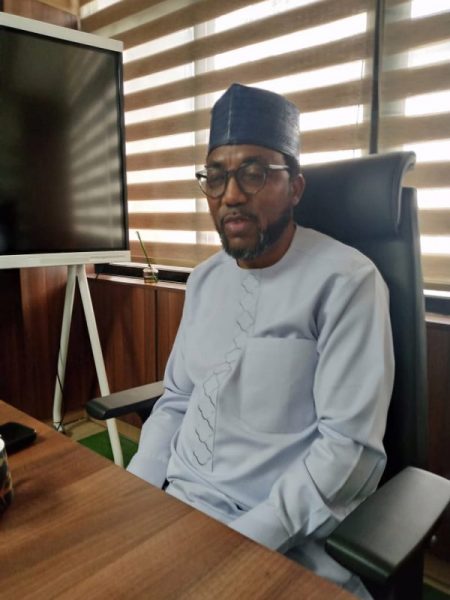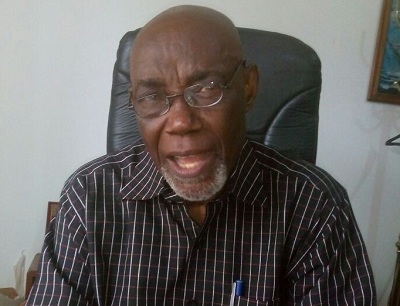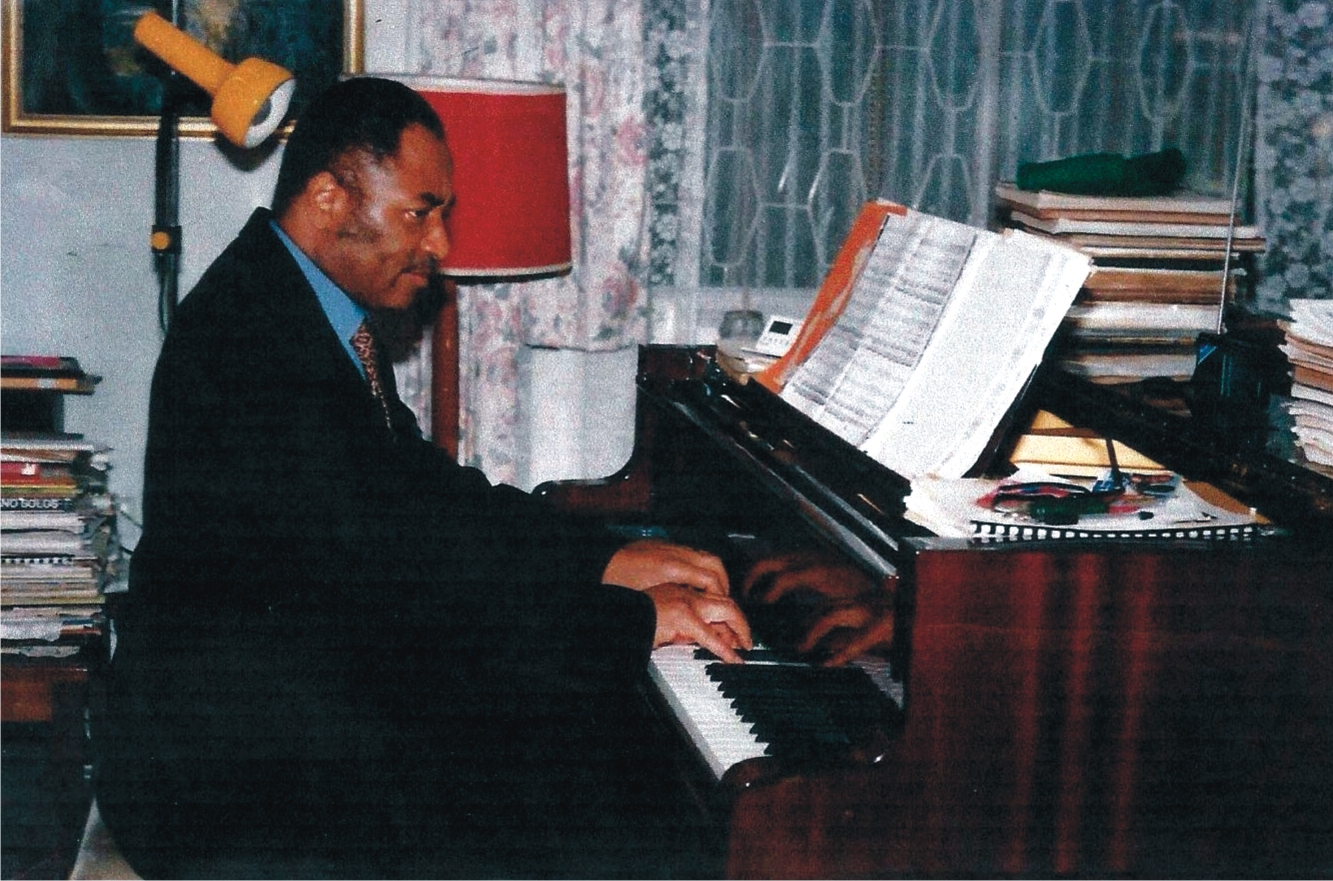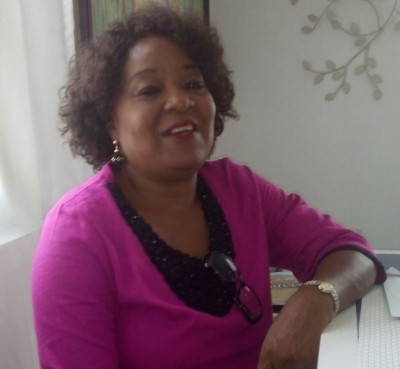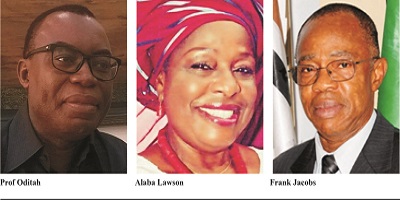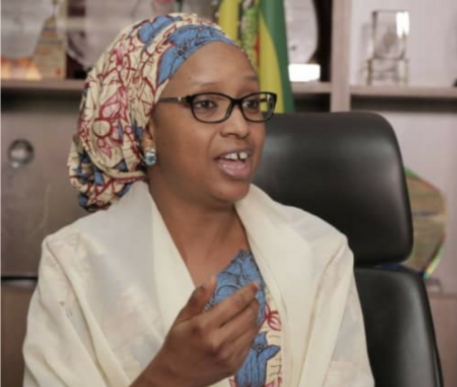Post-Election Maritime Outlook: Why Our Ports Will Be More Efficient In 2023-MD, NPA
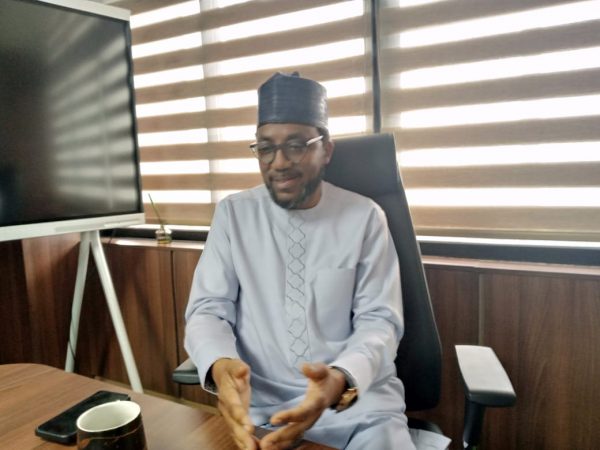
In February 2022, Mr. Mohammed Bello-Koko was appointed the substantive Managing Director of Nigerian Ports Authority(NPA). He had served in acting capacity from the position of the Executive Director, Finance and Administration. He was under incubation on this position for over four years, good enough to have graduated from a university system, if it were a formal learning institution. His mastery of the industry dynamics is a testament that he deserves a certificate, having been found worthy in character and in learning. Bello-Koko is a Kebbi State- born banking whiz-kid, who strayed into the maritime sector by dint of hard work and political aspiration. The coming of his team to NPA as appointed by President Mohammadu Buhari heralded reforms. It has been a relay race in which he took over the baton of leadership one year ago. Naturally, the question will be how has he and the Nigerian ports faired under this period? From his perspective as the Captain of the MV Nigerian ports, he has shared realities that are verifiable and plans as well as thoughts he wish could be worked on for a better maritime Nigeria. He spoke with the MMS Plus editorial team led by Kingsley Anaroke. Excerpt.
Can we have an overview of the maritime industry and possibly what is the outlook for 2023?
I think that the maritime industry will become more efficient in terms of services from the angle of Nigerian Ports Authority (NPA), Nigerian Maritime Administration and Safety Agency(NIMASA) and many others. Each of them has taken steps to improve their services to ensure that our mandate becomes digitalized in terms of operations. For NPA in particular, we are trying to digitalize our operations to make it easier for people to make payment, sail in and out of the ports and so on. NIMASA is doing the same thing and I can see that other stakeholders are trying to ensure that digitization becomes very critical and implemented and also because of the ports community system which is like a single window which is more like a maritime Single Window, which is what we are trying to implement. I am sure that by the time this is implemented the operations will become more efficient. And once there is efficiency the cost of doing business in our ports will naturally come down. And by this, the cargo we have been losing to our neighboring countries will be coming back into the country. I also see a lot of government efforts to rehabilitate the ports infrastructure. The NPA is spearheading that and, of course, we have the support of the Federal Ministry of Transportation. The Federal Government is keen to see all the decaying infrastructure rehabilitated and it is an ongoing process that we hope will commence very soon. You can see that concrete efforts are being made. Also, with the coming of the Lekki Deep Sea port it means we can bring in bigger vessels with larger quantities of cargo tonnages into the port. This is on a call by one vessel, actually. It means that there is an alternative. You can see that the maritime industry is beginning to come up with creativity and initiatives.
The Deep Blue project by NIMASA is also commendable. It has improved safety and security in our waters and economic zone, and so forth. The Nigerian Navy is also deploying more assets patrolling the channels and international waters to ensure piracy reduces. It is collective efforts by virtually all the stakeholders and I see a brighter maritime industry with efficiency. And for us in NPA, we would like to generate more revenue and become more efficient.
You did not talk about the cargo throughput and what is expected!
Naturally, the cargo throughput in the port can be related to the economy. We all know what is happening worldwide, there is inflation, the purchasing power of every household has really reduced, there is scarcity of forex for those that are importing, among others. But there is a World Bank statement that the Nigerian economy will grow better than projected this year. But this does not necessarily imply that this will lead to increase in cargo throughput. However, we expect that 2023 will be slightly better in terms of cargo throughput in relation to 2022. China has opened up suddenly after COVID and so manufacturers will be able to source their raw materials hitch-free.
You have a reward system in place in NPA with benefits and salaries but we have not heard of punishment for offences. Does it mean members of staff don’t get punished for infractions?
In the civil service under the condition of service there is room for setting up disciplinary committee to look at different disciplinary issues and offences committed by members of staff. That is what we do. Whenever issues come up we set up disciplinary committee. It is not made public in the media but we have instances where people are suspended or demoted, salaries are not paid for some months or they are not even allowed to write promotion exams. And the members of staff know. Even query alone is punishment because it is put in their file. There are many ways of administrating punishment; you can refuse to send a staff to foreign training because of he or she has committed some offences, which they know. So, there are disciplinary issues that we are handling but we don’t go to press with that but I can assure you that they are being handled.
The port concession agreement review is very critical and the Minister gave a deadline of 45 days which has since elapsed and running into months now. What has been happening to it, why the delay? And can you let us into some of the likely changes? Of importance is the payment system, is it going to be dollar denominated or naira?
The Minister gave mandate for the expired leases, of course, we had concluded before the expiry date of his mandate. We have sent it to the Ministry of course, you know that it is a process. It also requires ICRC certificate of compliance which we received in December, 2022. So the certificate of compliance has been received by Federal Ministry of Transportation and will be transmitted to us. All necessary things have been done and the final leg is to send it to the Federal Executive Council for approval, and I am sure in the next few weeks, that will be done.
On the dollar denominated payment, we keep explaining that the maritime industry and shipping are international businesses. You denominate a currency that a ship coming to the port for the first time should be able to pay. If I ask a vessel calling to Nigerian port for the first time, say Island to pay me in Naira, don’t forget, this payment must be made before the vessel arrives,how would it be able to do that? So, it is not just in Nigeria, that is an International practice in shipping. When Nigerians are exporting cargoes to other countries, they also make their payment in advance to the shipping lines. The argument of the terminal operators is that we should collect some of our revenues in dollars and others in Naira. But we have argued that we have dollar liabilities and we should be able to marry dollar liability with dollar revenue. But then we are looking for the best way to reduce the stress. We are discussing with the Central Bank of Nigeria (CBN) and Federal Ministry of Transportation and we will do that is in the best interest of the country. We understand there is pressure on dollars but it does not mean that we should start collecting Naira if it not in the best interest of the country. There are some businesses in the maritime industry or payment to NPA that we must collect payment in dollars because they are actually some businesses we must collect payments in dollars because they are inflow into the country from people that come to do business here. But we are reviewing all the payment system and we will receive guidance from the Federal Ministry of Transportation and we will ensure that the right thing is done.
Is there expectation in upward review of the royalties paid by terminal operators to reflect the economic realities in the country?
You find out that when terminal operators do upward review in their charges, do you know the authority they discuss with and get approval is actually the Nigerian Shippers’ Council (NSC). NSC is the regulator when it comes to increases and tariffs, not necessarily the NPA, even though the shipping companies and terminal operators are actually working with the NPA. Over time they have increased their tariffs but NPA has not increased its tariffs since the 1990s. NPA owns the physical infrastructure, which is the port,we dredge, maintain and reconstruct them. NPA owns the channels. Some of the channels are over a 100 kilometer long. We maintain those channels; we dredge those channels; we ensure that there are navigational aids there; we set up the signal stations; we ensure that there are marine crafts like tug boats, pilot cutters, mooring boats, among others, there. We have a lot of responsibilities but since the 90s we have not increased our tariffs. However, we are thinking that it is time we do that. We understand the economic situation, we understand the difficulties in doing business in the maritime industry but the cost of doing business in the ports is not ascribed to increase in tariffs by NPA. If an importer brings a cargo and the port has increased it, it is probably attributable to the cost of shipping, payment to terminal operators, the customs duty, the cost of clearing, among others. NPA however has written to the Ministry that probably it is about time that NPA should be allowed to increase its tariffs, even if it is a minimal increase in percentage. And another reason for the increase in the cost of doing business in the ports, are all the ‘silted’ costs; you understand what I am saying; for which we have been working with ICPC and Federal Government agencies to ensure that that reduces. That is it on tariffs.
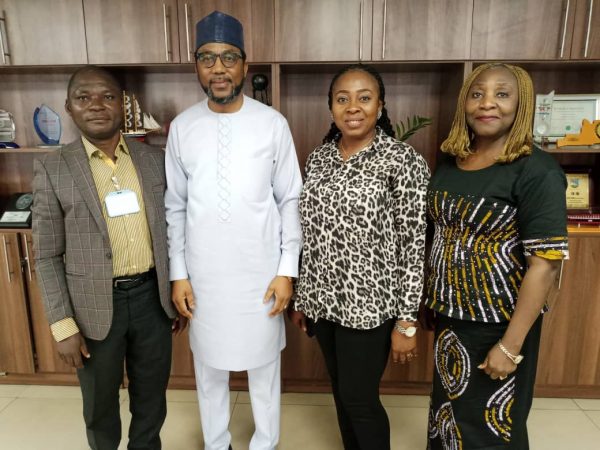
How has the fuel, diesel situation and power generation been affecting operations in NPA and the port industry?
These variables are really affecting us. A lot of the ports, of course, we are connected to the national grid and we know how epileptic it is and so we end up using generators. And the cost of diesel is really humongous considering that there should be light 24/7; even when the offices are closed, we should have illumination in the ports. As a port, we have marine vessels we have to bunker and bunkering them is very high actually; we have operational vehicles that we need to fuel. However, we are thinking whether to change the generators to gas or enter into a Public Private Partnership (PPP) arrangements by getting a private sector operators to come and invest in the provision of electricity in our ports. There are many proponents that have come up with that but we are reviewing that to get the best option that is in the interest of the country and work with the relevant government agencies to ensure that we get private investors to generate and provide electricity that will be cheaper. It is no more economical to be fueling those generators. As for the marine crafts, they are already constructed and they are there, they use diesel and you can’t do much about that but we keep on managing and ensuring that there is efficiency in their utilization.
I understand you had an arrangement with Flour Mills at a point, how far has that been?
When you say, arrangements, it wasn’t concluded so it was not an arrangement. But there was a discussion and few things came up. First of all, even if we get the electricity from them, they requested that we pay for the infrastructure, where the generated electricity will be coming from. The second thing is the tariffs they asked us to pay; they were quite high and then while making inquiries from the regulatory government agency, we are made to understand that whoever generates excess power is supposed to send it to the national grid and not to sell it directly. But this is a discussion that is ongoing, we are quite interested and it is one of the options like I said. There are many options.
They have been cases of containers falling off trucks, lately and killing people as a result of not being well strapped on the trucks and consequently, perhaps, NPA came up with the regulation of safety standards for trucks. Are there financial implications for this? What is the situation now?
Months ago we came up with the need to implement minimum safety standards for trucks . We realized that when you see trucks on the highways and on interstate roads breaking down it is because they are either not technically sound or there is a problem but of course, how do we reduce that? We have seen situations where cars ram into them, we have seen situations where containers fall off and the minimum safety standards we came up with is in conjunction with the Federal Road Safety Commission(FRSC), where we came up with a check list, it is not just that the vehicle must have trafficator, headlight, but they are also checking the hydraulics of the vehicles. They will also ensure that they should be able to strap those containers. They have their basic tests. One of the problems we have is that, though I can’t remember the figures, by the time we check the number of vehicles attempting to get into the ports for doing business in the port, probably, about 70 per cent of them do not meet the standards. And there was resistance and backlash by some of the truck owners. It became a major issue, but we did not capitulate, we insisted that those standards must be maintained. And we banned some of the trucks, using their plate numbers. They have so many ways of evading this: they will go and get a new plate number and if you resist it, that is trouble. However, to be fair, some of the truck owners have been quite co-operative, they understand the need to use the right trucks. Some of them have gone ahead to acquire trucks that have better conditions and so on. Now, what we have decided to do is to go through that minimum safety standards again. I will be having a meeting with the Commandant of the FRSC soon and we work with the Lagos State government to ensure that the right thing is done. However, some of these trucks are not necessarily coming out of NPA; some of them are coming out from off-dock locations( bonded terminals) that are not under the purview of NPA. So, we are going to bring them together to have meetings and discuss new modalities. Implementation is very key. Are we going to bring in the police to implement or the Lagos State government? We want to also ensure that we don’t set up something that will create more bottlenecks, create traffics in the ports corridor and then bring in individuals that will come and be extorting truck drivers and then before you know it will lead to violence because of resistance by truck drivers. We want to do that which will not create problems . When we are done with the meeting with FRSC, we intend to call the terminal operators, owners of the off- dock locations, bonded warehouses to ensure that any container that is not strapped, the truck should not be allowed to leave the port or off- dock premises. We will ensure compliance.
There seems to be a myth around the deep sea port in Nigeria reducing the cost of doing business in the ports. And this applies to the Lekki Deep Seaport. The economies of scale that comes with it for ship calls is noted but we seem not be looking at the cost of outbound freight. A situation where there will be no cargo for export and that could wipe out the gains of the economies of scale in terms of cost of freight because the shipping lines will have to factor in cost of outbound movement into import cost. So, essentially, how is it going to reduce cost in the short and long term?
The cost of doing business in any port is not just what you pay to the port authority. For instance, you bring in a vessel and the vessel immediately goes into berth and discharge. The importer will pay less. The ship waiting time is reduced. Instead of the ship waiting for four or five days it is actually spending a day. So there is no payment of demurrage when it comes to the payment of the vessel. The vessel comes into the port and you have ship to shore crane and rubber tyre gantry that can off load about 45 containers or so per hour, what it simply means is that the speed at which the cargo is discharged is also fast and faster than what we have here in the ports so far. For Lekki Deep Seaport, the stacking area is massive. They have a modern technology that makes it very easy to identify containers. Scanning will be done faster, they already have scanners that make it possible for containers to be scanned while it is still on the truck. So physical examination is reduced. Instead of spending three to four days doing physical examination as the Customs are doing now, you have electronic scanning. I am trying to show that efficiency on its own will reduce the number of days it will take people to get in their cargo and clear them. That naturally and automatically will reduce cost. Once you do that you will reduce the pressure. Human beings will naturally gravitate towards where the conditions are better and cheaper. So, you will start having reduction in terms of traffic whether it is vehicular traffic or cargo congestion and all that like we have in Apapa and Tin Can ports. Now, do we need other deep sea ports? Why not? If we set up another whether it is in Bonny or Ibom, what it means is that you now have another big size sea port that is deeper in draft that can host Panama size vessel also. Economies of scale will naturally set in. And when we start having this, we will begin to explore other logistics needs to support them. I was discussing with someone during which I said may be we should begin to turn Tin Can and Apapa to Canary Wharf. In the UK, Canary Wharf used to be the major port in London. But what did they do? They gradually started setting up ports outside the city centre and turned Canary Wharf into real estate area for offices, homes and so forth. This is a dream of the future but I am just saying that if the government and private sector decide to do that, it will turn out to be one of the best things to do. You know Tin can cannot expand in terms of land size or can Apapa expand except if you go in and start bringing down homes. Yes, Badagry ports will actually be good; it means you have two deep sea ports and eventually even the shipping lines will realize that it is better to bring the cargo to the deep seaports and then use smaller vessels to transship into Tin Can and Apapa ports.
What about the cargo export needs of the big vessels that could help determine freight cost?
It is the same thing. For instance, we have the export processing terminals now, those terminals are supposed to be one-stop-shops where the exporters will bring their cargo, it will be sorted, tested, certified and packaged and be containerized. The container will be sealed and be sent directly to the port and unto the vessel. You see how smooth that will be. And then we asked the terminal operators to set up shades and warehouses and some of them have started doing that for processing of exports also. So, the outbound cargo is the same way also. If Lekki is sending out cargoes using barges to off- dock locations, they will also use the same barges for export back to their port.
What is the truck call up system at the Lekki Deep Sea port like, given that there are no truck parks?
There will be another call up system there. Works on that have already started and the system is being test-run. We already have an existing one, which is Eto, and we are trying to see if the existing one will work there or explore a new one. That is being worked on any way with the Lagos State government, Lekki Free Zone Authority, Lekki Deep Sea port and NPA. There will be a call up system that will ensure that no truck comes into that location unless you have a container you want to pick. The port itself is setting up a truck park that will take about 1,500 trucks or thereabout . And there are other private companies that are looking at that.
The Calabar Port dredging, how has the out of court settlement been? Again, the Barge operations, you talked about review of charges recently, has it taken place?
For Barge operators, they have operated for so many years without paying any tariff to NPA. We set that up like a pilot scheme to see how effective that will be and you can see the number of TEUs being moved from one location to another. However, we believe that they are now strong enough to be able to pay tariffs to NPA. They are using our facilities, in fact, some of the Barges are destroying some of our Quay aprons, fenders and others. But we have come up with a Standard Operating Procedure(SOP), tell them the best time to operate even for Barges, we have come with the minimum safety standards, which we are trying to enforce and implement. Some of the Barges lack communications system, the pilots of those Barges, some of them don’t have proper certificate. We insisted on this and insisted that they must also brand their Barges so that they are easy to identify even from afar in event of infringement; we have asked them to stop double banking; we have asked them not to navigate the channels at a certain time of the day. And we have introduced tariffs. Of course, there are complaints of how the tariffs are too high. But they should be able to afford the tariffs. However, what we are trying to ensure that there are no double charges between us and the terminal operators.
The Calabar Port dredging you know is subjudice; it is in court. However, in the recent months, we have been trying to have out of court discussion with the company responsible for the dredging of Calabar Port. There are contentious issues to do with the dredging of the port years ago and some unpaid amounts. We believe that very soon we shall get to the end of the issue. The Federal Ministry of Transportation is working with us to ensure that the issue of Calabar dredging is resolved as quickly as possible.



